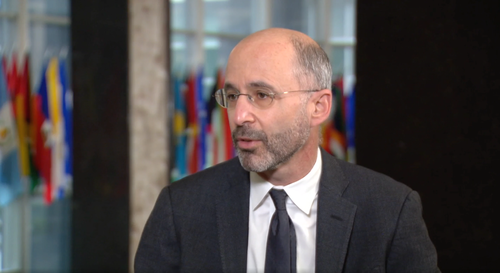For every week that passes without any breakthrough between Tehran and Washington, the prospect of a restored JCPOA nuclear deal looks bleaker. Talks in Vienna have remained stalled for weeks, especially after Iran previously indicated it would not resume negotiations, expected to enter the seventh round, until after hardline cleric and president-elect Ibrahim Raisi enters office on August 3rd.
And now for the first time, the US top negotiator in Vienna is vocalizing “increasing doubts” that deal is possible: “America’s top envoy for the nuclear negotiations with Iran, Rob Malley, is having increasing doubts about whether a return to the 2015 JCPOA agreement is possible, The New York Times reported Saturday,” The Jerusalem Post writes.

“There’s a real risk here that they come back with unrealistic demands about what they can achieve in these talks,” Malley told the Times, in reference to Raisi taking office Tuesday.Malley voiced concern over Iran’s latest advances as it continues intentionally breaching enrichment caps and terms under the original deal, which began after the Trump administration pulled out in May 2018:
A major concern since Iran froze out IAEA inspectors on May 24, and the negotiations mostly broke down shortly thereafter, has been the experience and scientific knowledge Tehran is achieving by continuing to enrich uranium at the 60% level and by continued use of advanced centrifuges such as the IR-4 and IR-6.
…The 60% enrichment level is two jumps up from the 5% level and considered only one step below the 90% weaponized level. Running hundreds of IR-4s and IR-6s is considered a major achievement that can allow Tehran to conceive of a more industrial-scale program that could eventually enrich sufficient uranium for a nuclear bomb within weeks.
Malley continued by saying of Tehran’s being poised to pursue a nuclear bomb if it decided to: “At that point, we will have to reassess the way forward; we hope it doesn’t come to that.”
